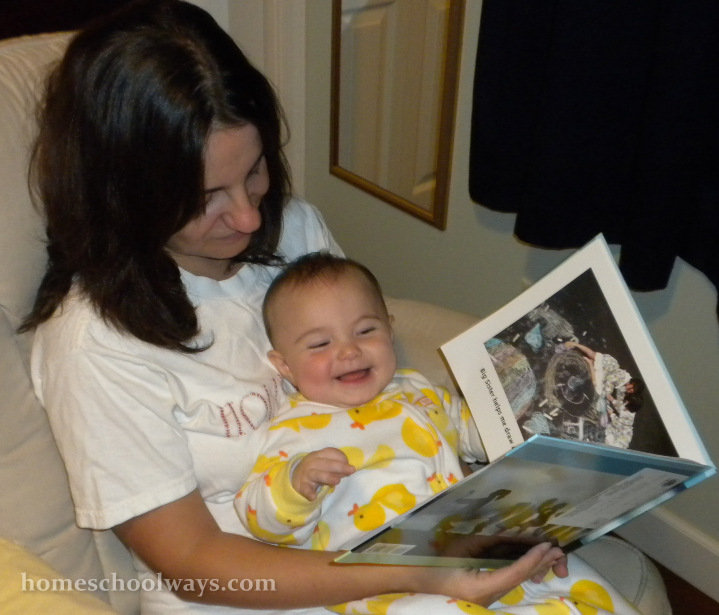After my father-in-law’s memorial service, a friend of the family told me how impressed she was with my six-year-old son, who had the courage to stand in front of a hundred people and read Psalm 23. “Does he go to the local school?” “No, he doesn’t,” I replied. “We homeschool.”
She looked perplexed. “Are you a teacher?” I told her that I have a degree in publications and that teaching one’s children at home does not require a teaching degree or a teaching license. If you can read, write and do basic math, you can pick up a primer and take it from there.
Her body language told me she did not understand. She congratulated me for having the courage to take on the task of homeschooling. I said, “That’s exactly what it takes. Courage.”

I have read to my children since infancy. Here’s my daughter in October 2010, enjoying some reading with mom before bedtime.
I walked away from that conversation feeling secure with my choice to homeschool. In my mind, homeschooling starts at birth or even before. Pre-natal influences can start a baby on the right path, or not. I know because, for three years, I worked with teenagers who had been diagnosed with fetal alcohol syndrome at birth.
A few years ago, I asked a marketing professional what she thought about homeschooling her sons. She replied, “I am not a teacher, so I don’t homeschool.” I thought, “Really? You are not a teacher? As a marketing professional, you go to work everyday to devise ways to educate the general public about your product. You teach the consumers in creative ways about the benefits they will experience if they choose to do business with your company. And you are not a teacher?”
For me, “Are you a teacher?” remains a classic question about homeschooling, right up there with “What about socialization?”
